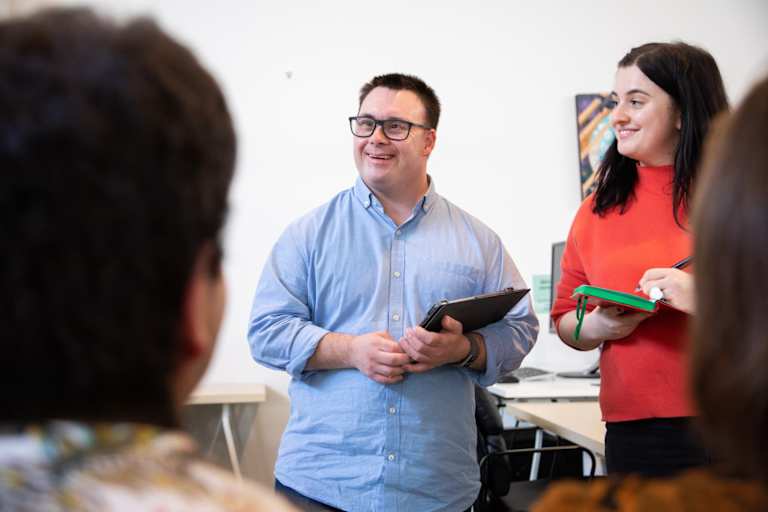Learn How To Become a Licensed Counselor in California
- Licensure Requirements
- How Long Does it Take?
- Out-of-State Licensing
- Licensing Renewal
- Salary Expectations
- Professional Organizations
- FAQ
- To become a licensed counselor in California, you must complete a graduate degree, meet supervision requirements, and pass the national exam based on your license type.
- LPCCs, LMFTs, and school counselors in California each have unique requirements for education, clinical experiences or internships, and licensing exams.
- California counselors earn salaries ranging from $50,000-$86,000 annually depending on their specialization and region.
California counseling licensure requirements apply to multiple professional pathways, including mental health and behavioral counseling, school counseling, and marriage and family therapy.
Each of these careers has unique licensure requirements. Explore all the details with this California-specific resource.
California Counselor Licensure Requirements
California offers the following types of counseling licensure:
- Licensed Professional Clinical Counselor (LPCC)
- Licensed Marriage and Family Therapist (LMFT)
- Licensed School Counselor
Multiple organizations oversee California counseling licensure: the Board of Behavioral Sciences (BBS) administers LPCC and LMFT licenses, and the Commission on Teacher Credentialing (CTC) handles school counselor credentialing.
Explore the sections below for further information on each pathway:
How Long Does it Take to Become a Licensed Counselor in California?
Your California counseling licensure timeline depends on the type of credential you’re seeking. The following minimum estimates account for all fundamental requirements including college degrees and experiential training:
- LPCC: 8-9 years
- LMFT: 8-9 years
- School Counselor: 6 years
The more education you pursue, the longer your credentialing will take. For example, the LPCC and LMFT paths both have options for candidates with doctoral degrees. Upgrading to a doctorate may raise your career ceiling, but it will also likely require at least three additional years of time investment.
Out-of-State Licensing Reciprocity in California
California counseling licensure reciprocity guidelines vary, according to the various licensure pathways.
The following chart offers a summary:
| License | Is Reciprocity Available? | Reciprocity Requirements |
|---|---|---|
| LPCC | Yes | Hold a comparable license in another U.S. jurisdiction for at least two years |
| LMFT | Yes | Hold a comparable license in another U.S. jurisdiction for at least two years |
| School Counselor | Yes | Meet CTC requirements for interstate transfers |
How to Renew a Counseling License in California
Counseling license types have different renewal requirements. In general, the renewal process operates on multi-year cycles and involves continuing professional education (CPE) requirements.
The following table summarizes the major requirements for renewing each type of California counseling license:
| License | Length of Licensing Cycle | Total CPE Requirements for Renewal | CPE Content Area Requirements |
|---|---|---|---|
| LPCC | 2 years | 18 hours for first renewal; 36 hours for subsequent renewals | At least 6 hours in law and ethics during each renewal period beyond the first |
| LMFT | 2 years | 18 hours for first renewal; 36 hours for subsequent renewals | At least 6 hours in law and ethics during each renewal period beyond the first |
| School Counselor | 5 years | 105 hours | Not applicable |
Salary Expectations for Counselors in California
California counselors’ average salaries range from $50,160 to $85,820, depending on their specialization. Educational, guidance, and career counselors in California earn the highest average salary, exceeding the national average by a wide margin, as do counselors who treat substance use disorders.
However, rehabilitation counselors, marriage and family therapists, and all other counselors earn salaries much closer to national averages. As you compare salary data, remember that California has one of the highest costs of living in the United States.
| Occupation | Average Hourly Salary | Average Annual Salary |
|---|---|---|
| Educational, Guidance, and Career Counselors and Advisors | $41.26 | $85,820 |
| Marriage and Family Therapists | $33.55 | $69,780 |
| Rehabilitation Counselors | $22.83 | $47,480 |
| Substance Use, Behavioral Disorder, and Mental Health Counselors | $32.20 | $66,970 |
| Counselors, All Other | $24.12 | $50,160 |
Professional Organizations for Counselors in California
- California Counseling Association: This nonprofit professional association offers extensive continuing education and career development resources. Members can also participate in virtual and live events relevant to counseling professions.
- California Association of School Counselors: School counselors can join this professional organization as students, affiliates, or active or retired professionals. Members gain access to professional publications, online resources, networking programs, advocacy and representation resources, discounts, and many other benefits.
- California Association of Marriage and Family Therapists: Members of this professional organization can access an on-demand learning library, mentorship opportunities, scholarships and grants. The organization also links users to CPE opportunities that meet California’s licensing standards.
Frequently Asked Questions About Counseling Licensure
No, you cannot practice counseling in California without a license. Licensure requirements vary depending on your specialization, but they apply to drug and alcohol, mental health, marriage and family, school counselors, and many other psychology professions.


